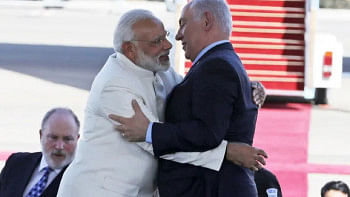Reasonable Restrictions: Article 39 of the Bangladesh Constitution and Global Standards

The issue of imposing limitations on freedom of expression has garnered the interest of scholars across the globe. The present discourse echoes back to the Constituent Assembly of Bangladesh (1972), wherein eminent personalities like Dr Kamal Hossain spoke at debates about the matter in question. Dr Hossain, citing examples from socialist and democratic states and the UN Charter, provided that no country can guarantee fundamental rights without incorporating reasonable restrictions defined by law. The issue of implementing limitations on the freedom of expression has been a topic of continuous discussion over time.
While the Constitution lacks a definitive textbook definition or clear delineation of the expression "reasonable restriction," it does establish in article 39(2) that restrictions can be legally imposed under various circumstances. These include safeguarding national security, fostering friendly relations with foreign states, maintaining public order, upholding standards of decency and morality, and addressing contempt of court, defamation, or incitement to commit an offence. In this context, it is worth emphasising that the freedoms of speech, expression and press provided in this provision are paramount not only for intellectual self-expression and social interaction among the citizens but also for preserving the spirit of unity by promoting democratic and secular values to boost national productivity.
The ICCPR, a well-known international human rights treaty, provides useful perspectives when comparing article 39 with global standards. The ICCPR also allows for restrictions to protect national security, public order, or the rights and reputation of others. Concerning a limitation on the right to freedom of expression under article 19(3) of the ICCPR, a three-part test is used to assess whether such a limitation is justified: (i) the limitation must be provided for in law; (ii) it must pursue a legitimate aim; and (iii) it must be necessary for a legitimate purpose.
Although there is a parallel between article 39 and the ICCPR in recognising the need for reasonable restrictions, the scope and interpretation of these restrictions differ. The Human Rights Committee of the UN, which monitors the implementation of the ICCPR, employs a three-step test to prevent the occurrence of arbitrariness in General Comment No. 34. According to the Comment, the general approach to impose reasonable restriction must be based on clear and accessible law, must pursue legitimate purpose, and the restriction must be necessary to achieve the intended purpose and be proportionate to the specific goal pursued. It is noteworthy that this test is not explicitly incorporated within our Constitution.
Other than that, article 5 of the International Covenant on the Elimination of All Forms of Racial Discrimination (CERD), articles 12 and 13 of the Convention on the Rights of the Child (CRC), and article 21 of the Convention on the Rights of Persons with Disabilities (CRPD) also protect the right to freedom of expression. While international instruments do reference the freedom of expression, there is no explicit mention of a specific test regarding reasonable restrictions akin to the ICCPR.
The American Constitution is known for its robust protection of freedom of expression, including hate speech while imposing strict limitations on government interference. However, as established in Brandenburg v Ohio (1969), it permits speech restrictions that incite imminent lawless action. Some scholars argue that Bangladesh, a democratic country like the US, should avoid imposing any limitations to safeguard freedom of expression. However, reports from the US sources highlight that unregulated freedom of expression has been associated with increased hate crimes. Specifically, the spread of hate speech resulted in an alarming 11.6% increase in hate crimes, with a bias against individuals based on race, ethnicity, sexual orientation, and religion.
Europe offers another global standard for freedom of expression. The European Convention on Human Rights (ECHR) takes a holistic approach to freedom of expression, unlike the US. The ECHR's article 10(2) restricts this right under the three-step test. The test also evaluates whether the restriction is necessary and proportionate to achieve the legitimate goal. In cases such as Sunday Times v The United Kingdom (1979) and Groppera Radio AG and Others v Switzerland (1990), the court has successfully struck a balance between safeguarding freedom of expression and maintaining other crucial societal interests. In addition, it is noteworthy that European courts have established a framework on the margin of appreciation for member states, which holds significance in safeguarding the freedom of expression.
In case 30/1992 (V 26) AB of the Constitutional Court of Hungary, it was stated that freedom of expression is a mother of several freedoms. Hence, the protection of freedom of expression is necessary. To conclude, the commitment to safeguarding freedom of expression is reflected in article 39 of the Bangladesh Constitution. However, scope exists to improve the formulation and implementation of restrictions. From international legal instruments such as the ICCPR and the European context, Bangladesh can borrow the three-step test to enhance clarity and precision, mitigating the risk of abuse and arbitrary enforcement.
The Writers are Official Contributors, Law Desk, The Daily Star.

 For all latest news, follow The Daily Star's Google News channel.
For all latest news, follow The Daily Star's Google News channel. 



Comments